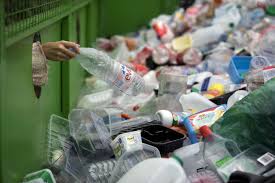Recycle plastics is becoming an important part of sustainable lifestyle, but moving the complexities of reused plastics may be daunting. Here’s a break down of all that you should know:
1. Types of Recycled Plastics:
Reprocessed plastics are classified based upon resin recognition codes (RICs), normally located on the bottom part of plastic containers. Popular kinds consist of PET (Polyethylene Terephthalate), HDPE (High-Denseness Polyethylene), PVC (Polyvinyl Chloride), LDPE (Reduced-Denseness Polyethylene), PP (Polypropylene), and PS (Polystyrene).
2. Recycling Process:
The recycling method typically consists of collection, selecting, washing, shredding, melting, and pelletizing. When pellets are formed, they may be used to create new releases for example bottles, boxes, clothing, as well as household furniture.
3. Environment Effect:
Recycling plastics conserves solutions, minimizes electricity ingestion, and decreases land fill squander. However, it’s necessary to note that recycling will not be without its ecological fees, such as transport pollutants and normal water usage during handling.
4. Difficulties:
Contamination, deficiency of structure, and buyer uncertainty create important problems to plastic recycling. Impurities like foods remains or no-recyclable resources can decrease the quality of reprocessed plastics and boost handling expenses.
5. Recycling Icons:
Knowing recycling signs is essential for proper disposal. The pursuing arrows icon with a variety inside indicates the resin kind, while the ♻ symbol ensures that the product is recyclable. However, not every plastics are recyclable in every single group, so it’s vital to examine nearby suggestions.
6. Reprocessed Goods:
Recycled plastics may be found in a wide array of merchandise, from packing and textiles to auto pieces and development supplies. By purchasing merchandise made out of reused plastics, buyers can support the recycling business and market a circular economy.
7. Improvements:
Advancements in recycle plastic modern technology consistently improve the performance and effectiveness of plastic recycling. From chemical substance recycling to naturally degradable plastics, ongoing analysis and advancement offer you encouraging solutions to the difficulties of plastic waste materials.
In conclusion, comprehending reused plastics is important for creating informed judgements about spend managing and sustainability. By reducing, reusing, and recycling plastics, individuals can play a role in a more healthy earth for future generations.
